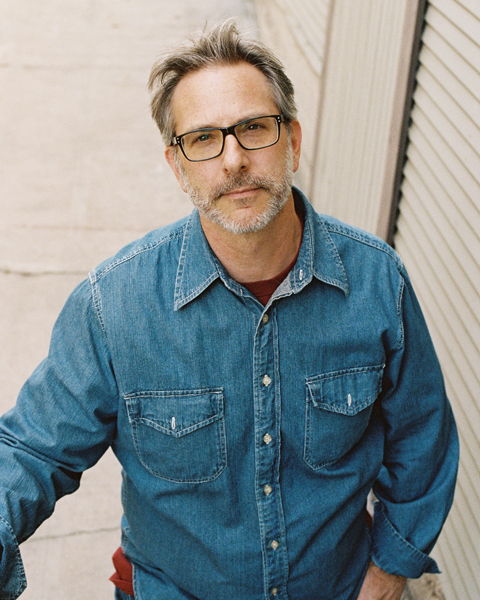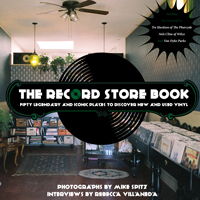Capturing a Record Store Revival

In “The Record Store Book” and “Queen City Records,” Mike Spitz (University of Cincinnati, 1989) shares stunning full-color photos and little-known facts about these still existing and legendary places to buy music. Both books include interviews from independent record stores.
Spitz started spinning the idea of creating a book featuring record stores when he spotted the popular “Store Fronts: The Disappearing Face of New York” book in a Los Angeles bookstore. Then, while visiting family in his hometown of Cincinnati he began to zero in on the record store idea.
As a boy, Spitz frequented Everybody's Records in Cincinnati and Record Theater where he first bought his records. His music collection grew as he inherited records from his older brothers including albums from Jethro Tull, Elton John and The Who.
“I collect records and used to be interested in being a musician, so it encompassed a lot of interests and things that I've done,” said Spitz. He took pictures of five record stores in Cincinnati. He liked the look of the photos but put them on the back burner for what later became “Queen City Records, Stores of Cincinnati.”
Since he lived in Los Angeles, he narrowed his subject matter to record stores in the city and found a local publisher. Local record store owners greeted Spitz with enthusiasm.
He started shooting photos of empty stores, then decided to keep people in the shots. “I realized, it's really more interesting when you have people looking through the records,” said Spitz. “I tried to focus more on younger people. This appeals to all generations, I think, but I was trying to break the myth of the old, crusty record collector. I wanted to bring out the youth because you go to Amoeba Records and it's like a thousand hipsters in there. It's just packed with people who didn't grow up on records. They're all 20 years old. What do they know about records? But it's packed with young people. Record collecting and record stores, that's a young thing now.”

He enjoys seeing record stores making a comeback, record companies pressing records again and recording artists putting out records. People in their late 20s, 30s and 40s own and frequent today’s new record stores. “They're young,” said Spitz. “There are only a few stores where it's sort of, the guys have been there forever, but most of the new stores in Cincinnati, and a lot of the new ones, they’re young, these are all young entrepreneurs. These aren't old guys with money.”
Spitz, who landed in Los Angeles by way of Paris, New York and Chicago, is a licensed clinical social worker who works with kids during the day and works in private practice two nights each week. He’s never tried to make a living in the arts, but the arts play heavily in his life.
“I just try to have a steady gig and then do this stuff around it. Every day, I go to Coffee Bean for about an hour and I work on my screenplay, or I used to go out and take some pictures. I'll do it on the weekend or if I do a record store project, I have to carve out a week or a few weekends to do that and then come back,” said Spitz.
His career has included acting in theater, commercials, and independent movies. He has written, directed and photographed several short films that have appeared in film festivals worldwide and on international television and he has self-published three books of photography.
